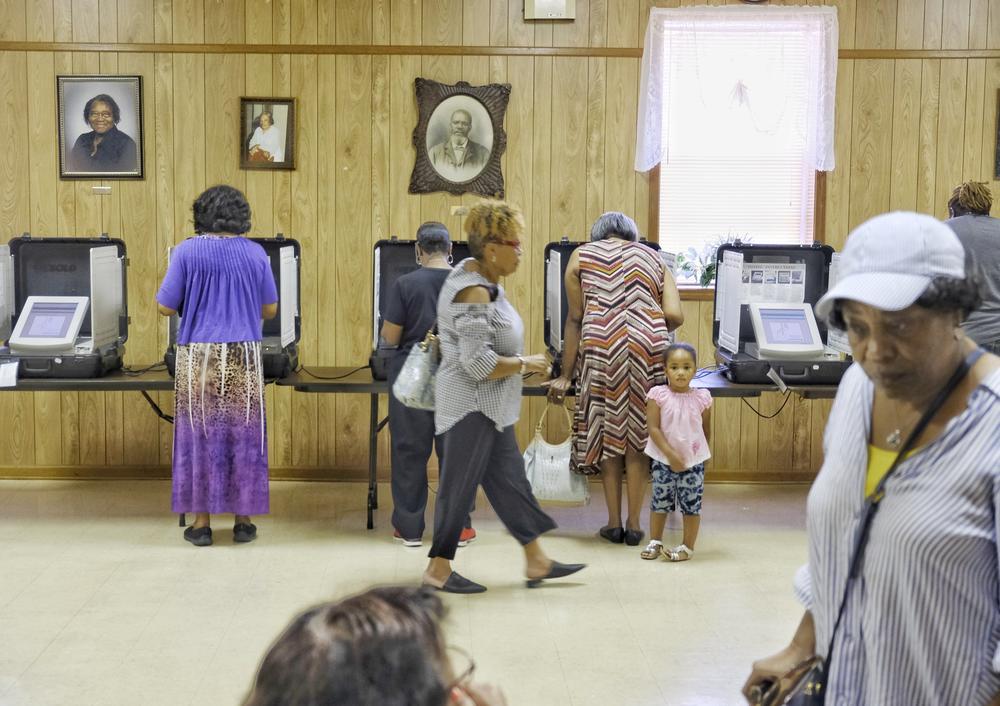Section Branding
Header Content
Voting Machine Bill Clears House Committee
Primary Content
After three days and close to 10 hours of public testimony, a House committee passed a measure that would change Georgia's voting machines and modify state election laws.
The governmental affairs committee passed HB 316 13-6, which would move Georgia away from outdated touchscreen direct-recording electronic machines to ballot-marking devices that have a paper component.
The $150 million bill would also make changes to the oath on the outside of absentee ballot envelopes, lengthen the period of time it takes before someone can be removed from the rolls for inactivity and enroll the state in an information-sharing program to maintain its voter list, among other things.
On Thursday morning, after some final comments from Reps. Bee Nguyen (D-Atlanta) and Mary Margaret Oliver (D-Decatur), the elections subcommittee of the House Governmental Affairs committee heard a series of amendments to the measure.
One amendment introduced by House minority leader Bob Trammell (D-Luthersville) would weaken the controversial "exact match" law that says if a voter's registration does not exactly match a certain state or federal database, it is held up on a "pending" list. During the 2018 election cycle, it was reported that about 75,000 voters were on Georgia's "pending" list for reasons ranging from typos in their name to not being old enough to vote.
The new amendment (which was then subsequently amended by the subcommittee) would allow registrations with a mismatch to still be processed, and a voter would have to cure their registration by bringing in proper identification to their polling place, which is something voters already have to do to cast a ballot.
This amendment and the bill as a whole still has a long way to go in the legislative process, moving next to the full governmental affairs committee.
Rep. Scot Turner (R-Holly Springs) co-authored an amendment that would create a pilot project for risk-limiting audits after elections are done, and if successful the secretary of state's office could implement them on a wider scale. The full text of the amended bill is not yet available.
But not everyone is on board with the bill, even with the amendments.
Turner led a failed motion to table the bill while subcommittee members had more time to consider the full scope of certain parts of the bill.
Democrats on the subcommittee and many members of the public who spoke this week want Georgia to switch to hand-marked paper ballots, saying that method brings a lower cost and more security, and cite numerous cybersecurity experts' opinions that paper ballots are the best option.
The bill's sponsor, Rep. Barry Fleming (R-Harlem) says he feels the subcommittee process and amendments have helped shape this into a bipartisan bill.
“We incorporated Democratic measures into the overall bill that they had introduced,” Fleming said. “We've worked with [Minority Leader Trammell], had meetings, got their input and made changes.”
He also added that while there’s still some discussion about hand-marked paper ballots versus ballot-marking devices, he’s pleased with the changes to election law.


